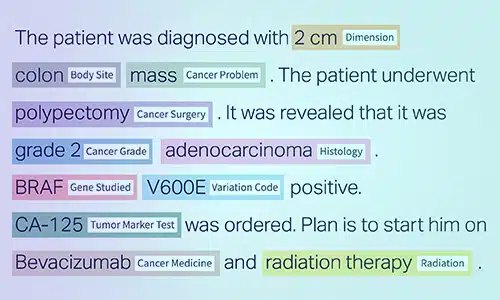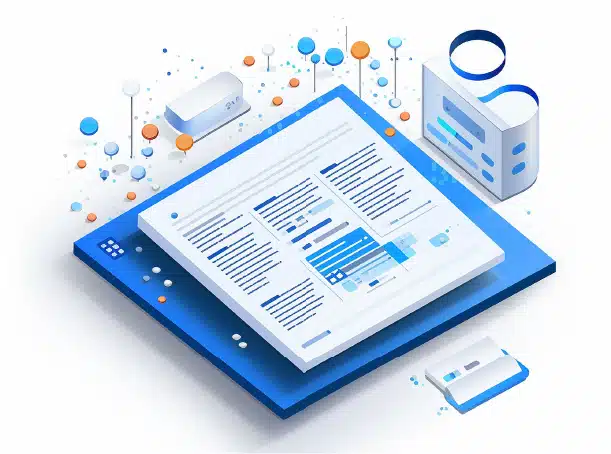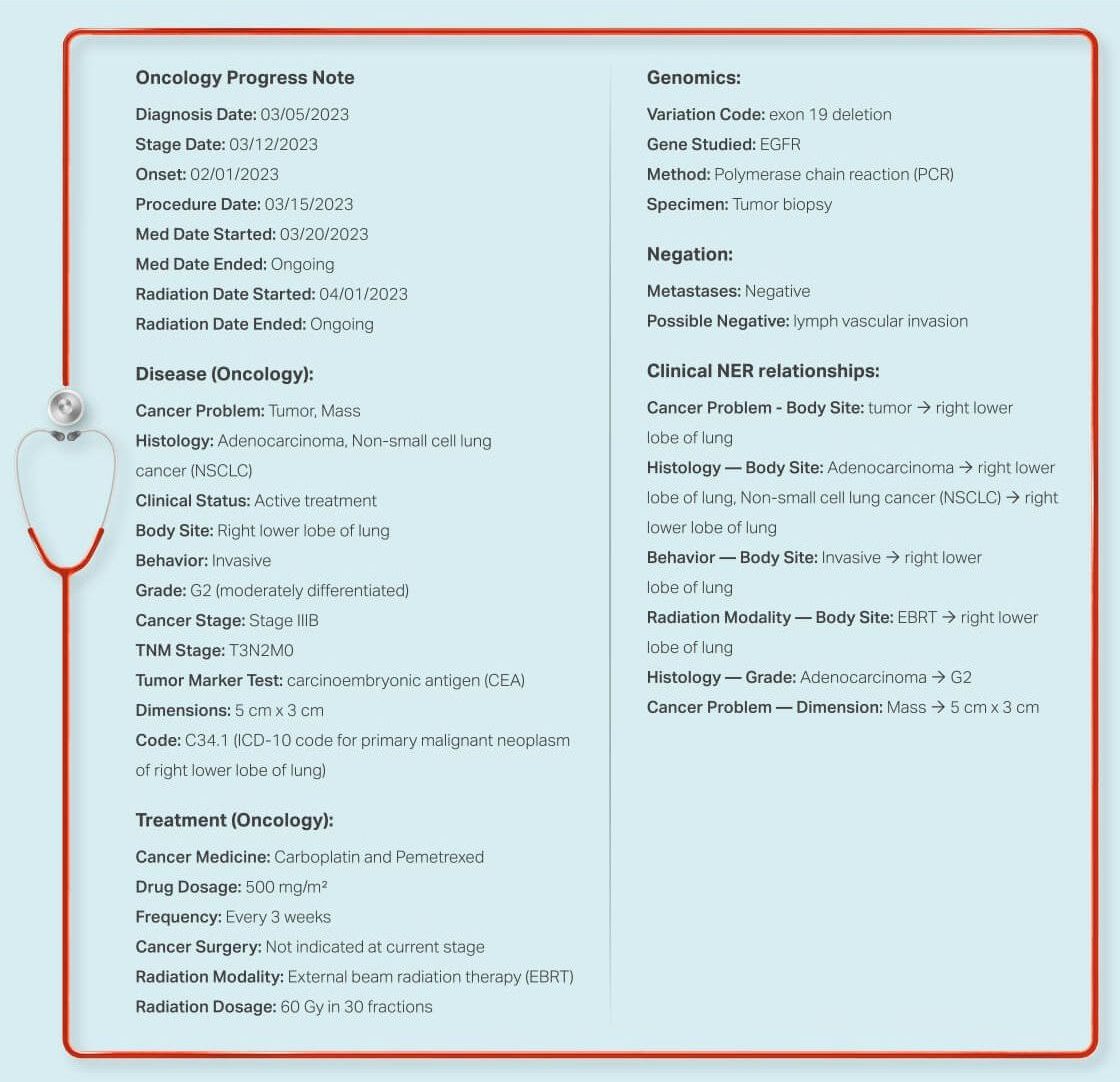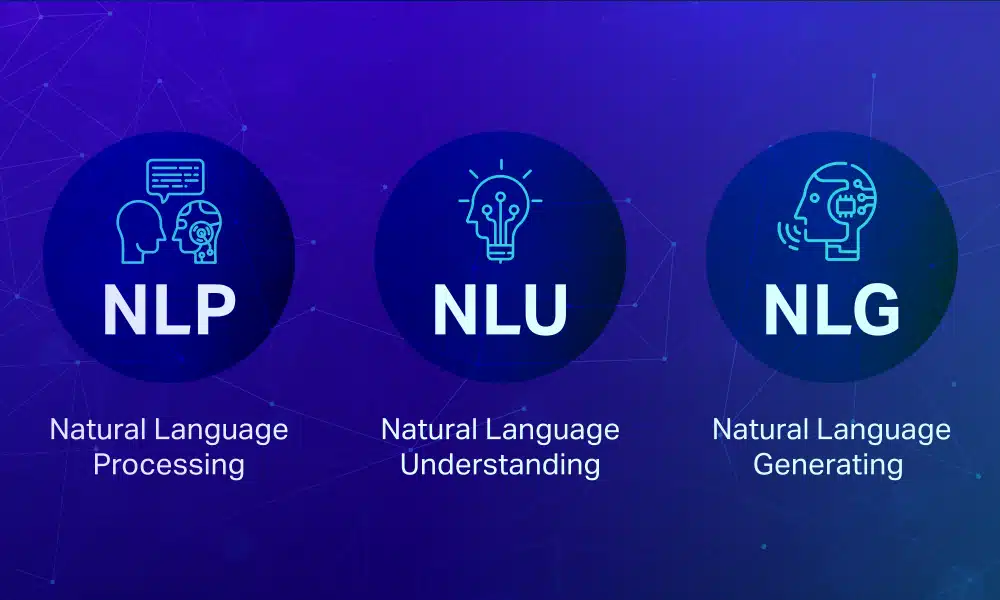Cancer poses a significant health challenge globally. It happens when cells grow and spread in an uncontrolled way. It’s the second leading cause of death worldwide and affects millions each year.
Oncology, the study and treatment of cancer, plays a crucial role in healthcare, constantly evolving with advancements like immunotherapies and precision medicine.
Amidst these advancements, Natural Language Processing (NLP) emerged as a transformative tool in oncology. NLP extracts and analyzes information from unstructured clinical texts and offers groundbreaking potential. It helps diagnose cancer, predict patient outcomes, and personalize treatment plans.
This article explores how NLP revolutionizes oncology to offer new insights and efficiencies in cancer care.
NLP Applications in Oncology
Natural Language Processing (NLP) can potentially change how we handle cancer care. It helps doctors and researchers understand and use the vast data in healthcare records. Here’s a look at how NLP is used in different areas of oncology:
Cancer Diagnosis and Patient Identification

NLP’s analysis extends to identifying tumor characteristics like size and location. It enhances early intervention and treatment planning. This proactive use of NLP in healthcare significantly improves cancer detection and patient care outcomes.
Clinical Trial Matching and Treatment Planning

Additionally, NLP helps doctors create personalized treatment plans. It analyzes patient data to predict the most effective treatments for each individual. This personalized approach, informed by NLP analysis, leads to more successful treatment outcomes. It creates the way for advancements in precision medicine in cancer care.
Drug Repurposing and Patient Communication

Beyond drug discovery, NLP significantly improves communication between doctors and patients. It powers chatbots and generates personalized educational materials, simplifying complex medical information for patients. This approach enhances patient understanding and involvement in their treatment. NLP’s dual role in drug repurposing and patient communication is vital in advancing scientific and human aspects of cancer care.
Extraction of Oncology Entities

NLP also gathers information on various treatment approaches and their effectiveness. Additionally, it helps understand how cancer impacts different body parts for comprehensive treatment planning. This extraction of oncology entities by NLP allows for a more detailed and accurate understanding of each patient’s cancer. It leads to better-informed clinical decisions and personalized care strategies.
Each application shows how NLP is making a big difference in cancer care. It helps doctors understand and treat cancer in more personalized and effective ways.
Challenges and Complexities in Oncology Data
Dealing with oncology data is complex. Cancer is not just one disease. It’s a group of diseases, each with its challenges. Here’s an overview of these challenges:
Complex Nature of Cancer
Cancer includes many diseases, each distinct in its diagnosis and treatment methods. This variety presents significant challenges in managing oncology data effectively. You require a precise understanding of each cancer type to develop effective treatment strategies.
Moreover, the unique characteristics of different cancers necessitate specialized data analysis and treatment planning approaches. It highlights the importance of tailored healthcare AI solutions in oncology.
Extracting Detailed Information
NLP is vital in retrieving critical data like tumor stage and grade from diverse clinical reports. These details, often not in standard formats, are essential for cancer treatment planning.
NLP’s ability to navigate complex data formats enables more precise and informed treatment decisions. It transforms unstructured medical data into actionable insights. Thus, it can improve the accuracy and efficiency of cancer diagnosis and treatment strategies.

Oncology Clinical Note Statement
“Patient Jane Doe was diagnosed with Stage IIIB non-small cell lung cancer (NSCLC), specifically adenocarcinoma, on 03/05/2023. The cancer is located in the right lower lobe of the lung. It is classified as T3N2M0 according to the TNM staging system, with a tumor size of 5 cm x 3 cm. An EGFR exon 19 deletion was identified through PCR analysis of the tumor biopsy specimen. Chemotherapy with Carboplatin AUC 5 and Pemetrexed 500 mg/m² was initiated on 03/20/2023 and is to be administered every 3 weeks. External beam radiation therapy (EBRT) at a dose of 60 Gy in 30 fractions commenced on 04/01/2023. The patient’s treatment is ongoing, and there is no evidence of brain metastases on the recent MRI. The possibility of lymphovascular invasion is yet to be determined, and the patient’s tolerance for the full chemotherapy regimen remains uncertain.
Oncology Clinical Note Statement

Variability in Data Sources
Oncology data originates from varied departments. This poses a challenge in integration. NLP tools adeptly handle this diversity for precise and thorough analysis. They streamline data from pathology, radiology, and oncology for cohesive insights. This capability helps researchers create comprehensive cancer care strategies. It allows for a more nuanced understanding of each patient’s condition.
NLP’s role in synthesizing disparate data sources is essential in advancing personalized oncology treatments.
Evolution and Future of NLP in Oncology
The use of NLP in oncology has grown over time. Projects like the National Cancer Institute’s SEER Program show this growth. They use NLP to manage national cancer registries. This is more cost-effective than older methods. The American Society of Clinical Oncology’s CancerLinQ project uses NLP too. It analyzes past cancer treatments to improve future care.
Looking ahead, NLP will likely become more critical in oncology. It will help develop new treatments and improve patient care. As technology advances, NLP tools will better handle complex oncology data. This will lead to more personalized and effective cancer treatments.
Conclusion
NLP significantly impacts oncology by enhancing cancer diagnosis, treatment planning, and patient care. It efficiently processes diverse and complex data, paving the way for personalized cancer treatments. The ongoing evolution of NLP promises even more incredible advancements.
Future developments will likely bring more precise treatment options and improved patient outcomes. The role of natural language processing in oncology will keep growing and shape the future of cancer care.




